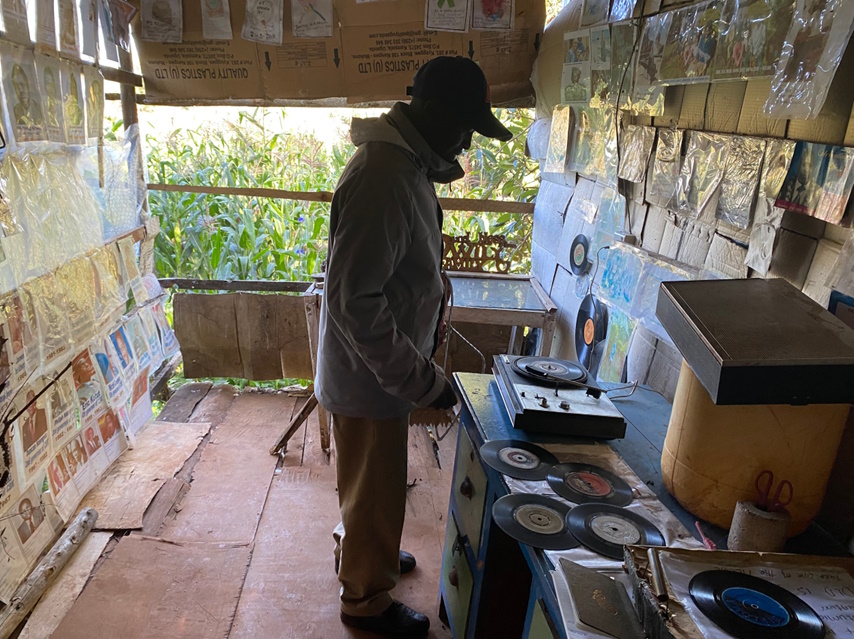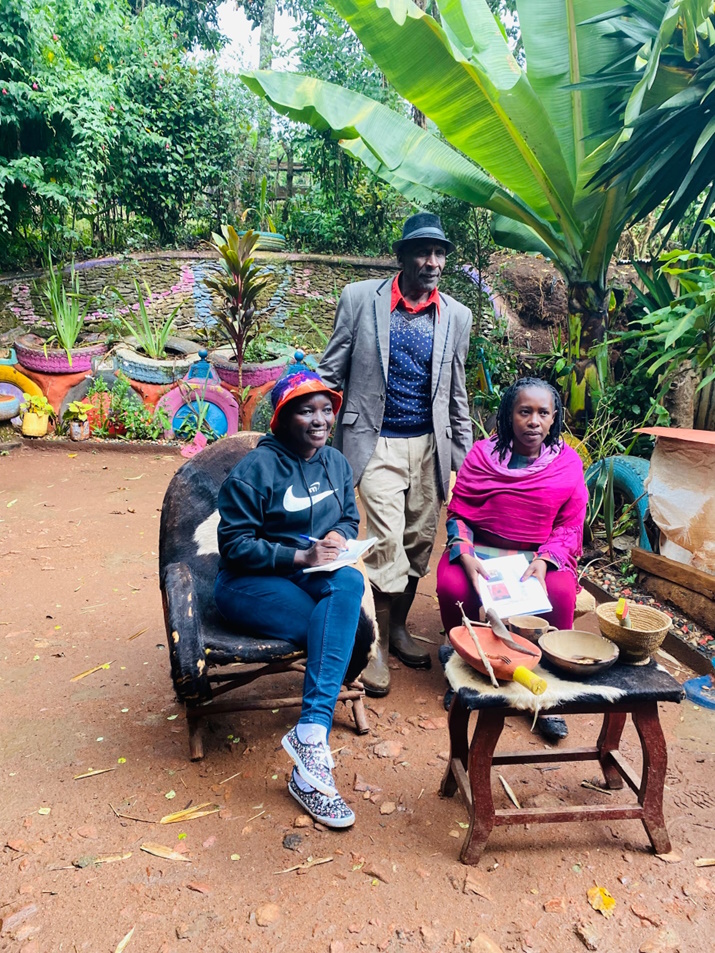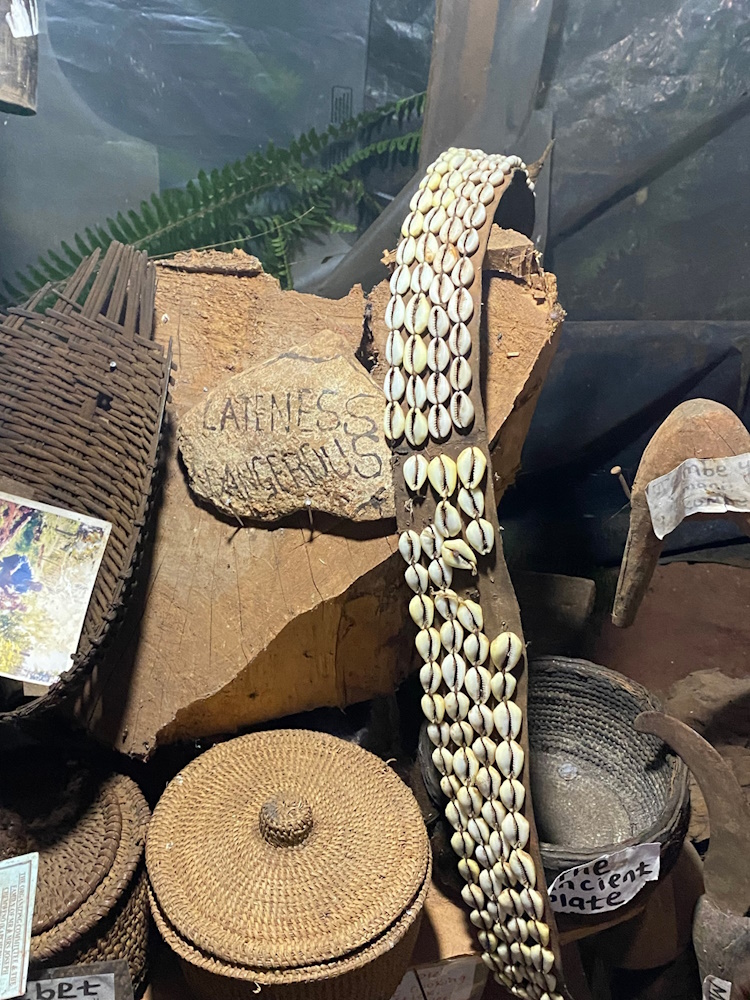The awakening call: What happens when the body of knowledge walks away? During the iPRES 2023 conference on digital preservation hosted by the University of Illinois Urbana-Champaign, a “heart to heart conversation” led by Chris Prom and iSchool faculty including Karen Wickett and Travis Wagner walked the talk and assured Kip-Agenge that barriers to digital preservation and climate change constraints can be lowered.
The partnership extended beyond the conference, as Kip-Agenge built knowledge partnerships with the University of Illinois Urbana-Champaign for the digital preservation and sustainability of Keiyo Indigenous knowledge for future generations. Community champions, leaders, elders, Indigenous knowledge holders, and mentors like Dr. Isaac Tarus, Prof. Rose Chepyator Thompson, Ivan Butina and Rocio Sanz of UNICEF, and Stacey Young of USAID; alongside dedicated community champions like Cosmas Langat, Gloria Chumo, Julie Nyambok, Gladys Kibet, and Elizabeth Wangari from Kenya; Adamu Abdullahi, Folashade Adeboju, and Naomy Harun from Nigeria; Paul Atsu from Ghana; and Epiphane Adjadji from Benin have been at the forefront advocating for the digital preservation of Indigenous knowledge for sustainable development.
Mapping Indigenous/local knowledge and digital preservation initiatives have been pivotal for sustainable development, fostering collaboration and partnerships across international development networks. The efforts, supported by Knowledge Management for Development (KM4Dev) and the University of Illinois Urbana-Champaign, leverage frameworks like the DPC to conduct needs assessments and capacity-building among community champions and Indigenous knowledge holders in Africa.
This approach has mitigated barriers to digital preservation, ensuring the safeguarding of community archives and human knowledge from aging elders.
Key achievements include:
Collaboration and Partnerships: Facilitating collaboration between public institutions, community champions, Indigenous knowledge holders and professionals at local and global levels, bridging language and cultural divides in Benin,Kenya and Nigeria.
Joint Research Initiatives: Several joint research projects have been conducted to preserve and digitize Indigenous knowledge, including:
-
Kip-Agenge: Re-imagining Partnerships for Digital Preservation of Keiyo Indigenous Knowledge in Kenya.
-
Catalyzing African Community Archives for Social Good.
-
Digital Preservation of Indigenous Knowledge on Medicinal Herbs among the Fon Community in Benin.
-
Digital Preservation of Indigenous Knowledge in Ramat Library, University of Maiduguri, Nigeria.
-
Digital Preservation of the Kanuri Traditional Circumcision in the Context of Boko Haram Conflict.
-
Disruption of Borno Cultures: How Digital Preservation Contributes to Cultural Sustainability among the Maiduguri, Borno State, Nigeria.
-
Building Communities of Practice and fostering partnerships with global and local partners to scale up digital preservation efforts in Africa and beyond.
These efforts signify a transformative approach to digital preservation, safeguarding Indigenous knowledge and cultural heritage for future generations while fostering interdisciplinary collaboration and sustainable development.
The project used a mixed-methods approach to investigate digital preservation practices, particularly focusing on Indigenous knowledge and community archives following the iPRES 2022 and iPRES 2023 conference. This initiative was motivated by the DPC grant awarded to Gladys Kemboi to attend iPRES 2022 in Glasgow. The Africa Knowledge Management Community, Kapchemutwa Forum and Kokwo digital platforms facilitated discussions and knowledge exchanges on digital preservation within Indigenous communities, museums and libraries.
Endangered Audio-Visual Archives at Keiyo Museum
For participant recruitment, snowball sampling was utilized due to the challenges posed by the cultural diversity and common mistrust within Indigenous communities. Participants were selected based on active engagement, contributions, and referrals from community champions and knowledge holders.
Additionally, the study incorporated interviews as a key data collection method, drawing on a qualitative approach with Indigenous knowledge holders and community champions. Field visits were conducted across villages such as Chebokokwa, Kapkatui, Bugar, Mindililwo, and Chepkongony to assess endangered community archives and born-digital records in need of urgent preservation efforts.
Further engagement involved focused group discussions with community champions and Indigenous knowledge specialists from Kenya, Benin, Nigeria, and South Sudan. To facilitate ongoing collaboration, the Communities of Practice platform was established among African community champions, providing an effective, cost-free platform for virtual sessions spanning across different countries. This approach facilitated broader dialogue and collaboration in the preservation of Indigenous knowledge and community archives.
©2023 Community Champions and Indigenous knowledge holder (middle) at Chepkongony Village / photo credit: Cosmas Langat
The innovative use of digital preservation techniques led to the development of Community-Driven Metadata Enrichment: Engaging community champions. Incorporating local knowledge, oral histories, and Indigenous languages, the community archives and Indigenous knowledge becomes more culturally relevant and accessible. This collaborative effort ensures that future generations can understand and appreciate the context behind each artifact.
©2023 Endangered artefacts at Keiyo Museum /photo credit: Gladys Kemboi

































































































































Planning ahead for DVD-Video migration research
Starting with complexity: Archiving digital-born music compositions from Mac systems of the 80s/90s